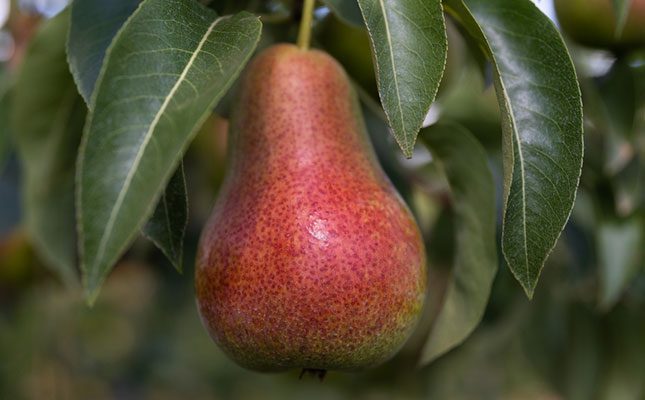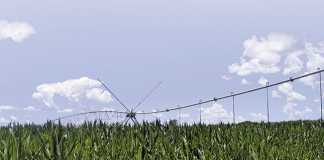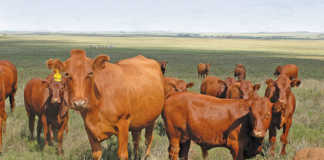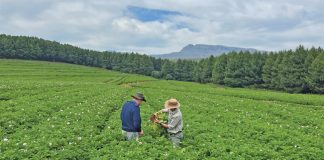
The Rosy-Lwazi variety was bred locally by the Infruitec-Nietvoorbij Research Institute of the Agricultural Research Council (ARC), and commercialised by Culdevco.
“It takes anything between 25 and 30 years to produce a new pear cultivar, and the Rosy-Lwazi breeding project, which started in 1995, was no exception,” said Prof Bongani Ndimba, the head of Infruitec-Nietvoorbij.
Following in the footsteps of other ARC pears on the market, such as Rosemary (1990), Flamingo (1993) and Cheeky (2009), Rosy-Lwazi expands South Africa’s blush pear cultivar range. It also widens the harvest season window, as it is now the earliest South African-grown blush pear available on the international market, which means higher prices.
“Rosy-Lwazi is a quality pear, crisp and delicious with no mealiness in the mouth,” said Culdevco GM Mishkaat Anderson.
“Our northern hemisphere market evaluations in the previous season indicate that its gorgeous red-blush colour, great quality and taste, and long shelf life will help it do exceptionally well in these markets.”
Ensuring quality
Following the crosses made back in 1995, this blush pear variety began its journey in 2007 when it was selected by pear breeder Taaibos Human as a potentially profitable cultivar based on its promising attributes at the time. Some 16 years later, in January 2023, the first Rosy-Lwazi was harvested at Eselfontein Farm on the outskirts of Ceres in the Western Cape.
Culdevco joined Eselfontein manager Vernon Bassett in the Warm Bokkeveld to begin the first commercial harvest of the variety. “It’s always very rewarding to experience a harvest day,” said Bassett. “This day symbolises all the years of effort, and finally we get to reap the benefits of the fruit.”
“We planted more than 500 trees in 2018 and anticipate that, as our tree volume grows, we can increase our tonnage per hectare. This year, we harvested 28t for export and expect to reach the recommended tonnage of 55t to 60t/ha in the near future. This season was our second year of exporting Rosy-Lwazi.
“It’s an attractive and adaptable early variety for the producer as the harvest coincides with very few volumes of red-blushed pears being available in the northern hemisphere marketing window. During this window, profitable prices are achievable if quality blush pears can be exported to these countries. Rosy-Lwazi shines when it comes to its attractive red blush, earliness, flavour, texture and storage ability,” Bassett said.
The 2021/2022 season saw the first export harvest for the new blush pear variety and the fruit made its way to the Middle East and Europe, where it was very well received.
Leading pear breeder
Culdevco is focused on keeping the home-grown advantage for the South African deciduous fruit industry. Its partnership with the ARC ensures unique and robust cultivars and continues to make a significant impact on the industry.
Indeed, according to Ndimba, the Rosy-Lwazi blush pear cements the ARC’s Infruitec-Nietvoorbij Institute as the leading pear breeder in the country and on the continent.
For more information, visit culdevco.co.za













